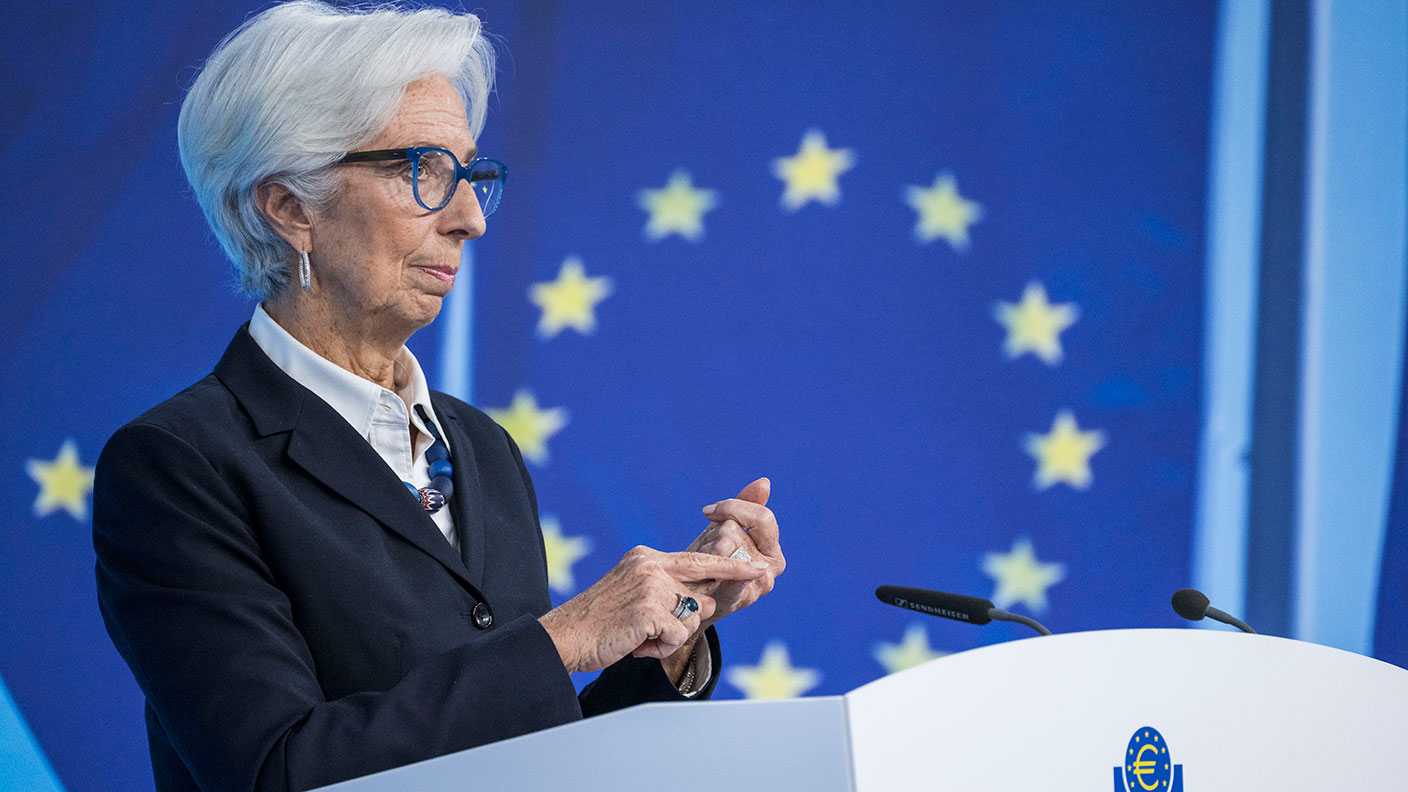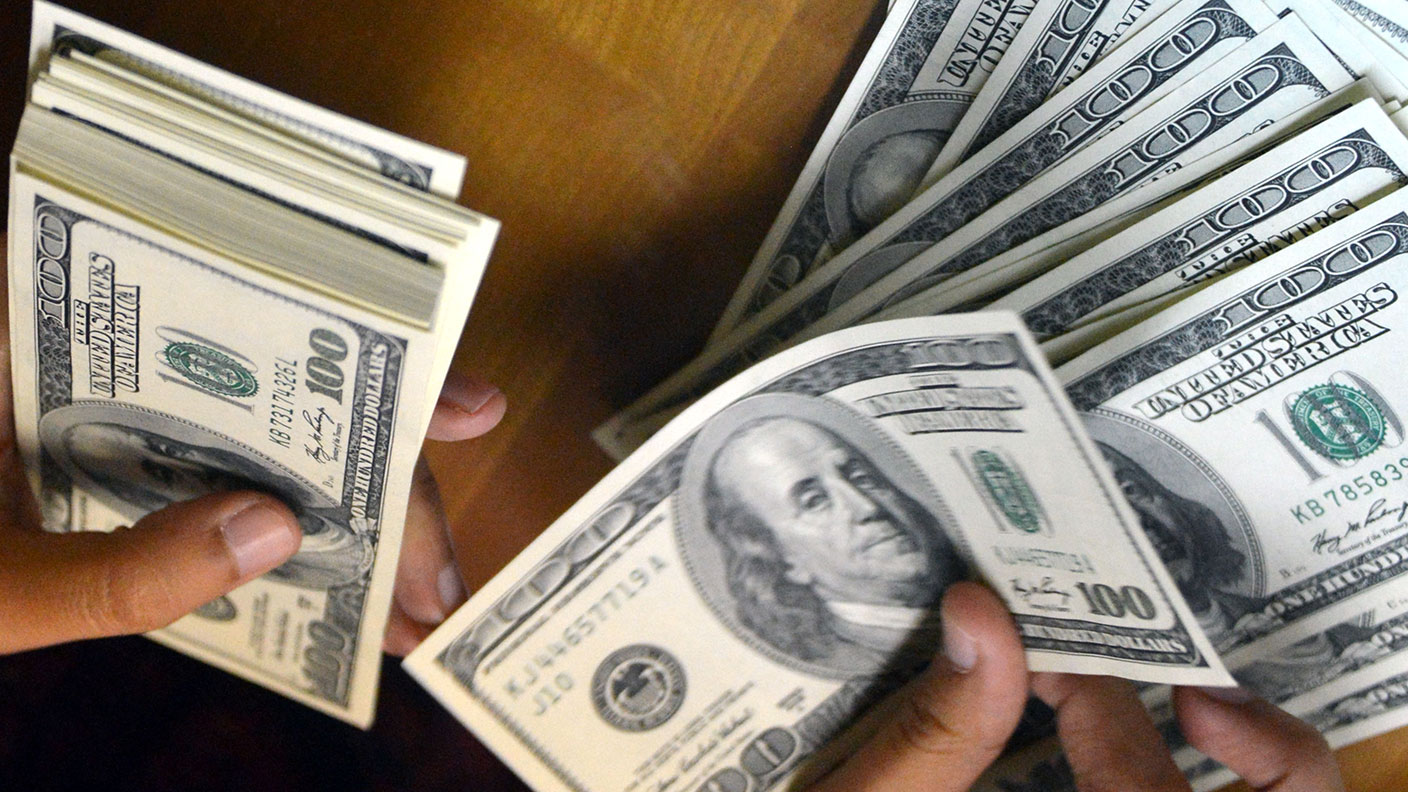Don’t worry about China selling US bonds – worry about this instead
As a tactic in its current trade war with the US, China dumping US bonds is often presented as its trump card. But it has another, more dangerous option, says John Stepek.

Get the latest financial news, insights and expert analysis from our award-winning MoneyWeek team, to help you understand what really matters when it comes to your finances.
You are now subscribed
Your newsletter sign-up was successful
Want to add more newsletters?

Twice daily
MoneyWeek
Get the latest financial news, insights and expert analysis from our award-winning MoneyWeek team, to help you understand what really matters when it comes to your finances.

Four times a week
Look After My Bills
Sign up to our free money-saving newsletter, filled with the latest news and expert advice to help you find the best tips and deals for managing your bills. Start saving today!

In the US-China trade war, China has a secret financial weapon, we're often told.
China owns more than $1.1trn worth (about 7%) of outstanding US government debt. That makes it America's largest foreign creditor. If it gets fed up, it could just dump that lot in the markets.
It's often presented as the "nuclear" economic option. US interest rates would surge, you'd have a run on the dollar that would show them, eh?
MoneyWeek
Subscribe to MoneyWeek today and get your first six magazine issues absolutely FREE

Sign up to Money Morning
Don't miss the latest investment and personal finances news, market analysis, plus money-saving tips with our free twice-daily newsletter
Don't miss the latest investment and personal finances news, market analysis, plus money-saving tips with our free twice-daily newsletter
Well, probably not.
This financial disaster story doesn't add up
I like a financial apocalypse story as much as the next bear, but "China's massive Treasury dump" is a tricky one to stand up. I'm not trying to be dismissive or complacent here. The real issue is that it's hard to see a path for China to dump its Treasuries that doesn't end up causing it far more trouble than it's worth, while leaving the US potentially unscathed.
Say China did decide to sell all of its US Treasuries. What would happen? As John Higgins of Capital Economics writes, let's say that the (presumed) goal was achieved, and Treasury yields started to go up (and so prices went down).
The problem is, China can't dump all of those Treasuries at once, so all the while that they were selling, they would be damaging the value of their own portfolio. (I hate to bring it up again but in theory, it's not unlike when Gordon Brown laid out a timetable for selling Britain's gold reserves).
There's also the problem that Treasuries are a popular asset, and they're deemed a safe haven. If people panic at the sight of China escalating an economic war between the two nations, what are they going to pile into? US government debt, most likely.
In the absence of obvious inflationary pressure in the US, a lot of investors would clamour to buy Treasuries as soon as yields went up appreciably. Particularly if they felt that a worsening China-US battle put global economic growth at risk.
Finally, of course, if China's dumping of Treasuries did have a serious impact as Brad W Setser points out in a good, though somewhat technical, piece for the Council on Foreign Relations then the Federal Reserve, America's central bank, has plenty of ways to offset it.
For a start, the Fed could just end quantitative tightening. That would offset some of the added supply hitting the market. And then if it wanted to, it could restart quantitative easing. In short, says Setser, "there is no shortage of technical options to limit the impact of China's sales".
This financial disaster scenario seems much more plausible
Of course, this does not mean that China can't cause disruption. Even by accident.
A much bigger deal could be what China decides to do with its currency, the yuan (or renminbi). Ever since 2008, as John Authers points out on Bloomberg, the yuan has remained below the seven per dollar level (up until 1995, it was pegged to the dollar at the much weaker rate of 8.3).
That number seven is seen as a line in the sand. If China allows the yuan to weaken to the point where it crosses that line, that will be seen as significant. You can see it as a prelude to another "currency war" if China allows its currency to weaken, then that would be an effective way of offsetting American tariffs.
And yet, the reality is that free market forces suggest that the yuan should be weaker in any case. Firstly, the US has tighter monetary policy than China. That boosts the dollar relative to the yuan. Secondly, tariffs fall more heavily on China than on the US again, that would typically call for a weaker yuan to compensate.
So it's not so much a case of China declaring a currency war by forcing the yuan down it's more the case that it might feel less inclined to defend current levels. After all, propping a currency up artificially costs money a central bank needs to use its reserves of foreign currency. Unlike your own printed money, those are finite (this is how the Bank of England came a cropper back on Black Wednesday in 1992).
But how far does it go? As financial historian and MoneyWeek regular Russell Napier has consistently pointed out, a devaluation of the yuan would have a massive impact on the rest of the world.
In the longer run, a full on Cold War between the US and China (which is arguably what this now is) would be inflationary effectively closing borders is inflationary in the way that opening them is disinflationary.
However, in the first instance as the minor devaluation panic in 2015 shows any such move by China is likely to be deflationary, partly because it would drive down the price of its goods relative to other nations. That really would rattle markets. You can read more about the impact here in this interview Merryn did with Russell a couple of months ago.
So don't worry about Treasuries keep an eye on the yuan exchange rate. We'll add it to the list of charts we monitor every week in Saturday's Money Morning.
Get the latest financial news, insights and expert analysis from our award-winning MoneyWeek team, to help you understand what really matters when it comes to your finances.

-
 Should you buy an active ETF?
Should you buy an active ETF?ETFs are often mischaracterised as passive products, but they can be a convenient way to add active management to your portfolio
-
 Power up your pension before 5 April – easy ways to save before the tax year end
Power up your pension before 5 April – easy ways to save before the tax year endWith the end of the tax year looming, pension savers currently have a window to review and maximise what’s going into their retirement funds – we look at how
-
 The challenge with currency hedging
The challenge with currency hedgingA weaker dollar will make currency hedges more appealing, but volatile rates may complicate the results
-
 It's time to back the yen, says Dominic Frisby
It's time to back the yen, says Dominic FrisbyThe Japanese yen has been weak for a long time, says Dominic Frisby. That may soon change.
-
 Why a strong dollar hurts – and what you can do about it
Why a strong dollar hurts – and what you can do about itAnalysis The US dollar is at its strongest level in 20 years. That’s bad news for most investment assets, says John Stepek – here’s why
-
 Could a stronger euro bring relief to global markets?
Could a stronger euro bring relief to global markets?Analysis The European Central Bank is set to end its negative interest rate policy. That should bring some relief to markets, says John Stepek. Here’s why.
-
 HubSpot: a tech stock set to tumble
HubSpot: a tech stock set to tumbleTips US tech stocks have had a fantastic couple of years. But this year is unlikely to be so bullish for high-fliers that can’t turn big profits.
-
 What does the future hold for central bank digital currencies?
What does the future hold for central bank digital currencies?Briefings Many of the world's central banks – including the Bank of England – have expressed an interest in creating their own digital currencies. Shivani Khandekar looks at the state of play in central bank digital currencies.
-
 Will the market crash again? Watch the US dollar for clues
Will the market crash again? Watch the US dollar for cluesOpinion One of the biggest driving factors behind the market’s recent big sell-off was the bounce in the US dollar. John Stepek explains why the price of the dollar matters so much, and why investors should keep a keen eye on it.
-
 The US dollar’s days as the world's most important currency are numbered – it’s official
The US dollar’s days as the world's most important currency are numbered – it’s officialFeatures Central bankers reckon the dollar's days as the world’s reserve currency are numbered. But what could replace it? John Stepek takes a look at Bank of England governor Mark Carney's cunning plan.